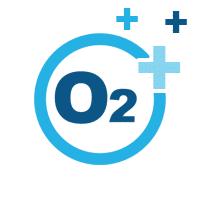Brain Damage
Brain damage is an injury that causes the deterioration or destruction of brain cells. Brain damage includes both Traumatic Brain Injury (TBI), caused by an external force, and Acquired Brain Injury (ABI), occurring at the cellular level. The severity of damage can vary based on they type of injury, but can range from headaches, confusion, and memory problems, to more severe cognitive, behavioral, and physical disabilities.
Benefits of Hyperbaric Oxygen Therapy for Brain Damage:

Increases Amount of Oxygen in the Blood
Stimulates development of new blood vessels from pre-existing vessels as well as the natural development of new blood vessels.

Reduces Inflammation & Swelling
Suppresses the cellular activity of the immune system which triggers swelling when an injury or damage to the body occurs. While this reaction is meant to start healing and protect from injury it can result in secondary injury, pain, and prolonged recovery time.

Preserves, Repairs, & Enhances Cellular Functions
Boosts cellular metabolism, promotes rapid cell reproduction, and enhances collagen synthesis. Collagen is a protein in connective tissues like skin.
Key Research on Hyperbaric Oxygen Therapy for Brain Damage
Recent News on Hyperbaric Oxygen Therapy for Brain Damage
Veteran says oxygen therapy is helping his PTSD
RALEIGH, N.C. — Post-traumatic stress disorder and the lack of care for it are two issues plaguing the veteran population. Now, there’s an option: hyperbaric oxygen therapy. The option became available after the state legislature designated funding for this purpose....
HBOT News Network Podcast: Elena Schertz & Extivita RTP
Elena Schertz, NP of Extivita-RTP in North Carolina, discusses how her clinic is actively healing the injured and sick with hyperbaric oxygen therapy (HBOT), including veterans, sports athletes and COVID long-haulers. She explains the proven benefits of HBOT – what it...
‘A godsend’: The 22 Project helps veterans with traumatic brain injuries
Veteran Tim Hammer undergoes hyperbaric oxygen therapy as a part of The 22 Project, May 20 in Delray Beach. JIM RASSOL/THE LAKELAND LEDGERAnthony Scaife can finally sleep at night. A veteran who served in the United States Navy from 1986 to 1993, Scaife suffers from...
Related Indications
Schedule a Consultation
Additional Research
Predictors of mortality after extracorporeal cardiopulmonary resuscitation.
Abstract: Extracorporeal membrane oxygenation (ECMO) is a promising adjunct to cardiopulmonary resuscitation (CPR) in refractory cardiac arrest (CA). Factors associated with outcome are incompletely characterised. The aim of our study was to identify pre-ECMO factors...
Hyperbaric oxygen therapy to improve cognitive dysfunction and encephalatrophy induced by NO for recreational use: a case report.
NO, or laughing gas, is generally used for anesthesia, especially in stomatology and pediatrics but is also commonly used recreationally. Cognitive dysfunction induced by the recreational use of NO is rare. Here, we present the case of an 18-year-old female with a history of having used NO recreationally for 5 months who suffered from encephalatrophy and severe cognitive dysfunction. All of the symptoms gradually subsided with ~20 days of treatment by hyperbaric oxygenation. We hypothesize that the long-term use of NO may have induced a chronic state of systemic hypoxia that further induced cerebral atrophy with impaired cognitive function. Hyperbaric oxygen therapy (HBOT) is reported here for the first time as an important therapeutic element for treating NO toxicity due to recreational use.
Drowning in fresh or salt water: respective influence on respiratory function in a matched cohort study.
Abstract: For the most severe drowned patients, hypoxemia represents one of the major symptoms. As the influence of the type of water (fresh or salt water) on respiratory function is still unclear, the primary endpoint of this multicenter study was to compare...
